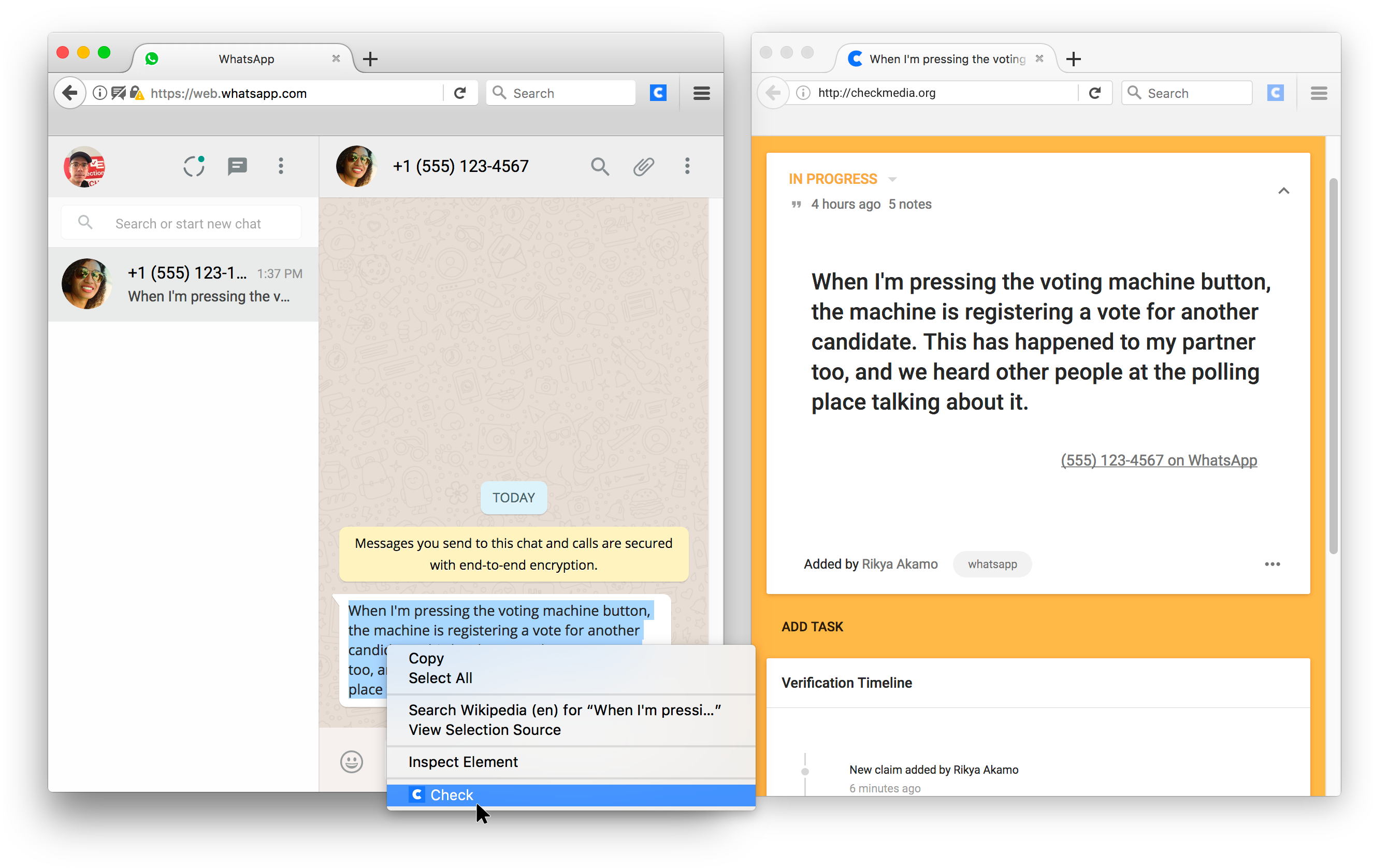We’re at the mercy of our readers.
That’s essentially fact-checkers’ current strategy when it comes to debunking viral hoaxes on WhatsApp, the increasingly popular messaging app that is becoming a focus for those fighting misinformation. Since they can’t monitor and address the platform’s encrypted messages directly, fact-checking organizations around the world are asking readers to send fishy messages to their institutional WhatsApp accounts so that they can check them.
It’s an imperfect solution to a growing problem. But now there’s a tool that could help fact-checkers streamline that process.
Check, an online verification program created by the software company Meedan, has developed a tool for journalists to quickly add claims from WhatsApp into its verification workflow. With the browser extension installed, fact-checkers can highlight WhatsApp messages in Google Chrome or Firefox, right-click and add them directly to their Check workflow for their team to later debunk. Those workflows are not yet open to the public.

“We hope this tool will streamline a lot of the workflows we’re seeing emerge — and people are practicing — for submitting and collecting tips,” said An Xiao Mina, product lead at Meedan. “We hope the tool can also support broader research.”
Mina said the highlighting feature is similar to some of what’s been done at the University of Hong Kong, where researchers are working on ways of quickly sending questionable WeChat messages to fact-checkers. In the future, Meedan hopes to explore opening up the function to people outside of specific Check teams, which operate similarly to Slack teams.
The tool is clearly imperfect. Fact-checkers have to use Check’s verification platform, buy the paid version and install the browser extension for it to be helpful — and it only works on WhatsApp’s desktop web version. It also still requires journalists to solicit possible hoaxes on WhatsApp, which they then must ask readers to distribute in kind.
But the tool lays the groundwork for potential innovation in fact-checking on the Facebook-owned platform, whose own staff doesn’t have the ability to monitor the characteristics of viral messages.
And as misinformation continues to pose a problem for fact-checkers, developing and implementing the right tools is key. While there are several browser extensions that enable people to submit sketchy news stories and media to fact-checking organizations, Check’s highlighting tool specifically targets hoaxes on WhatsApp — a platform fact-checkers say needs more tools to make their jobs easier.
Kate Wilkinson, senior researcher at Africa Check, told Poynter that, in order to effectively fight fake news on WhatsApp, it would be helpful for Google to implement the reverse image search function into mobile for the average person to use.
“That’s a huge impediment to people actually fact-checking on their phones,” she said. “The fact-checking process for a normal member of the public on their phone is pretty difficult.”
And of course, WhatsApp groups are still capped at 256 people and messages are encrypted end-to-end.
Developing a useful, accessible way to debunk claims in private messages is easier said than done. While grabbing the metadata of messages on private platforms would make it easier for fact-checkers to debunk claims, Mina said there are several legal and ethical dilemmas to consider.
“We’re so early in this conversation about private messaging apps,” she said. “There are ethical, legal and technical questions that the larger journalism verification community needs to talk through.”







